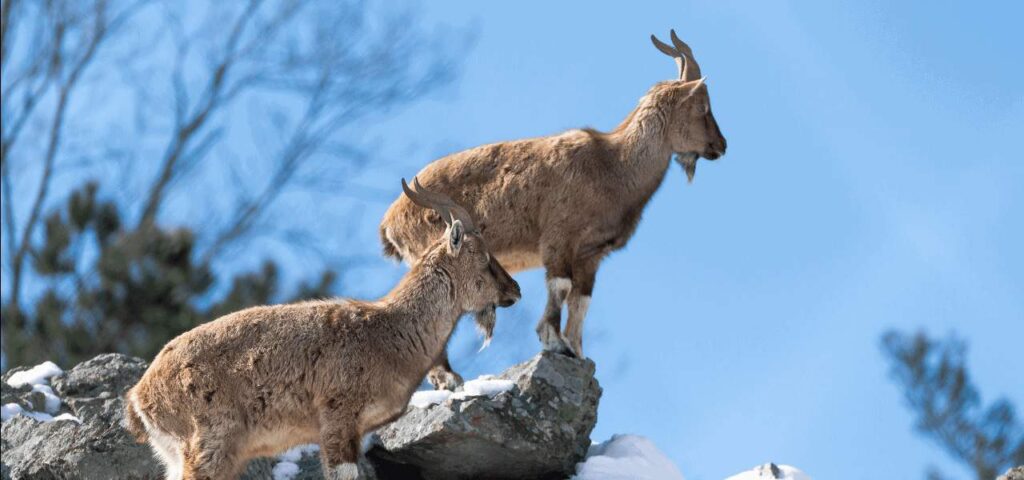Asadullah Bazai, a former national shooting champion and veteran hunter, has embarked on a mission to save the rare Sulaiman markhor, a straight-horned goat native to Pakistan that was once on the brink of extinction due to extensive hunting and poaching.
Since 2002, Bazai, 55, and his team have dedicated significant time and resources to preserving this rare species in Balochistan. The Sulaiman markhor, a sub-species of Pakistan’s national animal, is endemic to Asia. In Balochistan, its major habitats include the mountainous regions of Torghar and Takatu, with smaller populations in Ziarat, Sherani, and Zhob districts.
Bazai, a father of five who represented Pakistan in numerous international shooting events, renounced hunting in 2002 to focus on conservation efforts. His team, composed of former amateur hunters and wildlife photographers, operates across the Takatu range, northeast of Quetta, spanning over 150 kilometers.
A transformative encounter with Hungarian rifle shooters in Karachi in 2002 inspired Bazai to switch from hunting to conservation. They advised him to “shoot” animals with a camera instead of a rifle, which prompted him to launch his campaign when there were only a few dozen Sulaiman markhors left in the Takatu range.
Today, Bazai and wildlife experts estimate the population of Sulaiman markhors at around 2,000, with a 2023 survey by the Balochistan Wildlife Department reporting 1,400 in the Takatu range. Bazai’s campaign involves local communities, encouraging them to protect the markhor and prevent hunting.
The Sulaiman markhor, which thrives in clear, dry climates at altitudes between 2,290 to 2,745 meters, has seen its population stabilize thanks to community involvement and sustainable trophy hunting programs. A long-term project initiated in the 1980s by Balochistan’s Forest Department and tribal chief Mir Naseer Khan yielded positive results by the early 2000s.
Wildlife expert Tahir Rasheed credits the combined efforts of the forest department and the tribal chief for increasing the markhor population from less than 100 to thousands. The latest estimates place their numbers between 4,500 and 5,000, with significant populations in the Takatu and Torghar ranges.
International wildlife organizations still classify the Sulaiman markhor as endangered, but its growing population may soon be deemed stable. The species enjoys a diverse habitat across Balochistan, with the Torghar range alone hosting about 3,500 markhors.
Trophy hunting has also contributed to the population increase. The Balochistan government granted permits for the 2023-24 hunting season at record prices, with one permit fetching $245,000. Revenue from hunting permits supports local communities, funding schools, mosques, health centers, and scholarships. Approximately 80% of the revenue is allocated to local communities, while the rest goes to the national exchequer.
